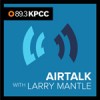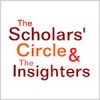Addiction is a compulsive behavior, which means it can be understood like other emotionally-driven compulsions: by uncovering the emotional content behind it. I have expanded upon these ideas in some depth in my prior books The Heart of Addiction and Breaking Addiction.
Introspective psychotherapy offers the best chance of achieving self-knowledge and insight. A number of professional organizations across the nation offer free referrals – start here for a basic list. I recommend searching for a therapist who is conversant in the notion of addiction as a compulsion, and who resists the facile and discredited “brain disease” theory of addiction.
In the absence of therapy, addicts can still make use of these same ideas on their own, by carefully considering what is happening emotionally at the moment when the urge to drink, or use, arises. This first insight can unlock a fuller picture of what is driving the addiction, and eventually lead to an answer about how to resolve those feelings in a more direct way. My second book, Breaking Addiction: A 7-Step Handbook for Ending Any Addiction offers a detailed map to this self-guided process.
I welcome further thoughts on treatment professionals, organizations and facilities that reach beyond 12 Step dogma toward a more humanistic understanding of addiction.







